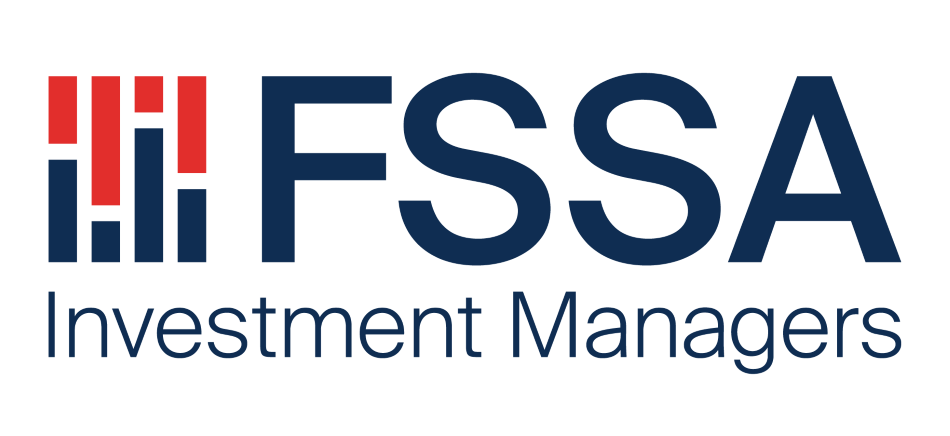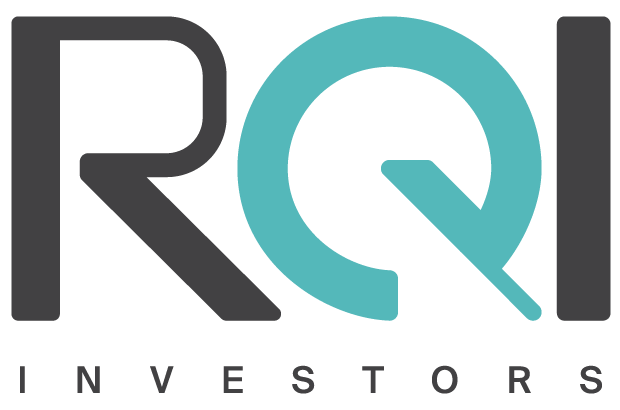Your search returned more than 50 results. The 50 most relevant results are displayed.
Tap into a relatively stable investments in real assets, infrastructure, property and essential services we all rely upon
The real estate sector contributes approximately 40% of global greenhouse gas emissions and has the greatest potential to reduce emissions over time – in this context our global property securities team has developed a market-leading net zero framework incorporating scope 1, 2 and 3 emissi...
Office real estate is undergoing a fundamental shift, while covid-19 has accelerated a number of global real estate investment trends, according to first sentier investors.
We believe real estate securities will be supported by a global economic recovery in 2021, underpinned by highly accommodative governments and central banks and the gradual normalisation of commercial and social activity as the world is progressively inoculated against covid-19.
In September 2023, I met more than 30 global listed infrastructure companies and stakeholders from the UK, Europe and China. The following travel diary summarises my impressions and findings from these meetings.
The real estate sector contributes approximately 40% of global greenhouse gas emissions and has the greatest potential to reduce emissions over time – in this context our global property securities team has developed a market-leading net zero framework incorporating scope 1, 2 and 3 emissi...
As central banks grapple with runaway inflation and broad equity and fixed income valuations continue their slide south; the merits of a liquid, diversifying, defensive allocation to listed infrastructure are substantial.
Now that more than 18 months have passed since covid-19 started sweeping the world, we have a good understanding of how the pandemic has affected real estate investments. in some ways, it has changed the game. in other ways, it has simply underlined a number of trends that were already sha...
Stabilising the climate will require strong, rapid, and sustained reductions in greenhouse gas emissions, and reaching net zero CO2 emissions.
Global asset management group focused on providing high quality, long-term investment capabilities to clients. We bring together independent teams of active, specialist investors who share a common commitment to responsible investment principles.
Global GDP growth continues at long term trend levels, mainly driven by developed countries where economic growth remains broad based across the household, private and Government sectors.
The outlook for the global economy and financial markets looks more uncertain today than it has for a long time. Both interest rates and inflation have risen sharply. There is a growing consensus that much of the world will shortly be experiencing slowing economic growth. Understandably, investor...
Global Property Securities - US resi 2.0: The expanding renter opportunity | First Sentier Investors
As the renter market in the united states continues to grow, so does the opportunity for investors in a certain type of real estate investment trust.
As more carbon emission regulation comes in globally – as we expect it will – real estate investment trusts (reits) with emission reduction plans are likely to be better-placed than their peers as the cost of carbon increases.
COVID-19 has sent shockwaves through capital markets, and property securities have been no exception. The crisis has plunged the global economy into recession and has given rise to the remote work and learning thematic, while seemingly fast-tracking the rise of e-commerce.
This paper outlines the key challenges for EV acceptance, analyses the rollout of EV charging infrastructure around the world, and considers practical ideas for investors to super-charge the uptake of EV.
Climate change is having real investment implications today which we believe will continue into the future. however, as we have described previously, the focus on carbon footprinting is potentially missing significant risks in portfolios and can even, at times, be misleading.
Vaccine rollouts and government stimulus have led to expectations of higher economic growth, inflation and interest rates. this has put pressure on listed infrastructure returns with the asset class significantly underperforming global equities over the past 12 months. but with over 70% of the i...
The past decade has witnessed the birth of a new asset class: Global Listed Infrastructure Securities (GLIS). While investors have embraced infrastructure as an asset class since the 1990s, the idea of investing in infrastructure via listed securities was developed by a small number of Australian...
This paper examines our investment teams’ approach to managing a global listed property portfolio and highlights how it aims to preserve clients’ capital in a climate of rising interest rates and/or softness in property prices.
Property markets fell consistently around the world in February. The FTSE EPRA/NAREIT Developed Index (TR) was down 6.3% in USD terms. In local currency terms, Canada was the strongest property market despite losing 1.1%, while the US (-7.4%) was the weakest property market.
We have collected over 170 case studies from across our diverse investment teams on how a culture of responsible investment and stewardship manifests itself in real-life investment decisions and engagement with companies.
The ftse epra/nareit global developed index (gbp) decreased 7.7% in the march quarter, which was more than the broader equities market (msci world index -4.8% total return in gbp terms). global reits (real estate investment trusts) struggled over the first half of the quarter before return...
Our investment philosophy is to back owners and managers with whom we feel strongly aligned. These owners typically have track records of treating all stakeholders fairly, in both good and bad times.
As we return to the skies for that first face-to-face meeting, reuniting with family or taking that well-deserved holiday, the airports we pass through will be markedly different to what we knew before.
Digital transformation, cost cutting through operational efficiency, scalability and COVID-19 safety. These four themes have been key drivers in almost every industry, which has been reflected in the gravity of changes we have seen as industries have evolved. The hospitality industry is facing di...
Global listed infrastructure underperformed in 2023 owing to rising interest rates and a shift away from defensive assets. relative valuations are now at compelling levels. infrastructure assets are expected to see earnings growth in 2024 and beyond, aided by structural growth drivers.
The ongoing global outbreak of the Coronavirus (COVID-19) pandemic has seen an extensive sell off permeate financial markets as investors grapple with concerns around how the drastic government and central bank responses to the outbreak will augur for global economic growth. The dramatic sell off...
Global Listed Infrastructure held up as investors grew increasingly concerned about rising inflation and future interest rate increases. US Consumer Price Index jumped by a higher-than-expected 8.5% in March compared to a year earlier, the largest annual gain since December 1981. The FTSE Global ...
Credit portfolios with genuine Environmental Social and Governance (ESG) integration could be a canary in the coal mine for potentially difficult-to-quantify risks and opportunities, including those likely to stem from climate change and the energy transition. While governments globally move a...
Global economic growth continues to grow at a moderating pace. We expect global GDP growth to continue to slow into 2020 along with the Chinese economy. High Chinese Local Government debt, moderating terms of trade and a sluggish domestic economy continue to weigh on growth.
Land, Labour, Capital and Entrepreneurship. These are the well-known “Factors of Production” as defined by classical economists. The Entrepreneur (or Company) is the one that combines these factors to earn a profit.
American Listed Infrastructure (ALI) has seen a significant increase in Merger and Acquisition (M&A) activity. Private market and foreign corporate buyers are paying premiums of 25% to listed markets, often for non-controlling stakes. This M&A illustrates the intrinsic value available to investor...
In order to fully understand why Kaisa defaulted on its bonds, we first need to get a good grasp on the deleveraging policy called the three red lines. Following years of debt-fueled growth in the property sector during which home prices surged six-fold over the past 15 years, the Chinese governm...
Last quarter I visited infrastructure companies in Tokyo, Osaka and Nagoya. The trip included visits to ten corporate head offices and three site tours. This paper seeks to share some of the key findings from my meetings with Japanese passenger rail and utility companies.
First State Investments (First State) today announces Niall Mills’ appointment to Head of Global Infrastructure Investments of the Unlisted Infrastructure business following Perry Clausen’s promotion to Global Chief Investment Officer.
Leading global investment manager, First Sentier Investors (FSI), today announced the appointment of Yoshiki Ueno to the role of Deputy Chief Executive Officer
Global Listed Infrastructure decreased as central bank tightening measures, elevated inflation levels and concerns for lower economic growth rates continued to weigh on financial markets.
First sentier investors is a global fund manager with experience across a range of asset classes and specialist investment sectors. we are stewards of assets managed on behalf of institutional investors, pension funds, wholesale distributors, investment platforms, financial advisers and th...
The First Sentier MUFG Sustainable Investment Institute, a joint venture initiative between First Sentier Investors and Mitsubishi UFJ Trust and Banking Corporation, has published new research on the growing issue of microfibre pollution.
What could be better than tapping into the boom in tertiary education while also reducing exposure to economic risk? Student accommodation has been a fast growing property sector as it satisfies investor demands for more growth and less risk. This piece looks at a recent transaction in this secto...
Globally, major property market returns were relatively strong in March against a weak broader market. The FTSE EPRA/NAREIT Developed Index (TR) rose 0.66% in GBP terms. In local currency terms, the UK (4.3%) was the best performing market, while Hong Kong (-2.5%) was the worst.
Global Listed Infrastructure gained in February, supported by steady earnings growth and buoyant investor sentiment. The FTSE Global Core Infrastructure 50/50 index gained +1.1%, while the MSCI World index rose +1.9%^.
Global Listed Infrastructure’s defensive qualities were highlighted during October’s turbulent market conditions.
Global Listed Infrastructure shrugged off a backdrop of political and trade uncertainty and maintained its upward path in May.
Globally, all major property markets rose in local currency terms in December except for Japan, which ended the month slightly lower. New Zealand was the strongest property market in GBP terms, returning 9.0%, followed by the UK, which rose 8.2%. The FTSE EPRA/NAREIT Developed Index (TR) rose 1.5...
Government fiscal and debt metrics are strong but pro-growth fiscal policy risks deterioration. At the point they are forced into using fiscal buffers, the market will have repriced the risk sharply.
A new report commissioned by the First Sentier MUFG Sustainable Investment Institute highlights the governance challenges facing fund boards due to the rapid evolution of sustainable investment.
In 2020, one group of companies has done particularly well – the popular digital technology companies focused on e-commerce, delivery and entertainment, to name a few industries. In emerging markets, they dominate the Chinese market; but they can also be found in Korea, Southeast Asia, Eastern Eu...
Get the right experience for you
Your location :  United Kingdom
United Kingdom
Australia & NZ
-
 Australia
Australia -
 New Zealand
New Zealand
Asia
-
 Hong Kong (English)
Hong Kong (English) -
 Hong Kong (Chinese)
Hong Kong (Chinese) -
 Singapore
Singapore -
 Japan
Japan


























